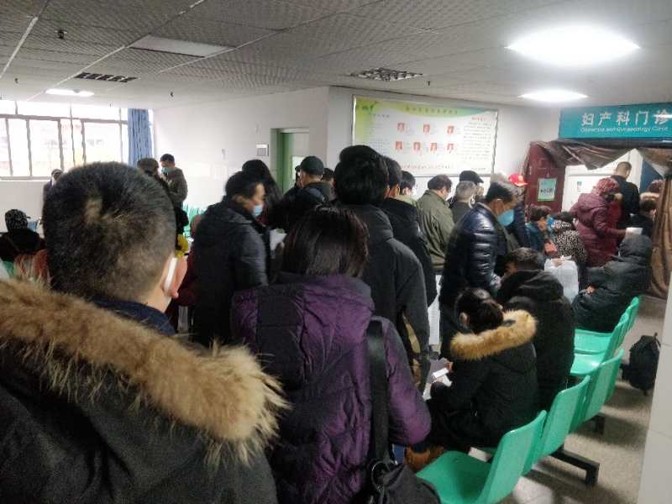Ronald Klain: Coronavirus is coming—and Trump isn’t ready
Those who were sick swarmed to the hospitals, where halls and waiting areas were packed. Smiley sent me videos of patients shouting and venting their anger, while others cried in despair. In the press and on social media, I saw doctors and nurses, clearly overworked and under extreme stress, trying to calm people down while doing their jobs with limited protection gear. Medical resources were in short supply: There were simply too many sick people and too few beds.
Amid the growing health crisis, the government converted Wuhan No. 9 Hospital, where Smiley and her mother were, into a fever clinic dedicated to patients with coronavirus symptoms. To avoid further infection, the city decided that only designated hospitals could take fever patients, which made No. 9 Hospital even more crowded. New potential cases arrived so quickly that nurses were asking people who were less ill to vacate their beds.
In the hospital diary Smiley kept, she wrote on January 23: “Mom’s temperature is at 38.5 Celsius. She’s becoming more and more frail with stuffy chest and short breath. Wuhan is in a lockdown and we are all alone.”
“I whispered to my mom, ‘You will not leave this bed unless they personally remove you,’” Smiley wrote. “That hospital bed was our lifeline.”
A 22-year-old nurse took Smiley up and down the stairs looking for a new bed while patients were being cleared out for more space. She was from Xianning, a small city outside of Wuhan. “She didn’t wear any protection gear, just a surgical suit,” Smiley wrote in her diary. “She was practically running ‘naked.’ I asked her if she was scared. She said, ‘Of course.’”
While the number of infected cases multiplied around China, I struggled to fall asleep at night in rural Addis Ababa, where I was working. News flashes lit up my phone every few minutes.
I sent my parents updates on the coronavirus from sources I trusted as frequently as I could, almost to scare them into better protecting themselves. Panic seeded lots of misinformation on social media, and I was worried that what people were absorbing from the Chinese media wasn’t the full truth. It didn’t help that my dad, a macho man, believed in fate more than protection, or that as a filial son, he never said no when my grandma with Alzheimer’s demanded to go for a walk for fresh air.
January 24 was Chinese New Year’s Eve, when hundreds of millions of people usually sit happily with one another around feasts. I called my mom in a poor-quality video chat. My dad, my mom, and my aunt had three dishes on a sofa table watching TV. My dad said: “Don’t worry. We canceled all celebrations.”
On the same evening, Smiley was with her mom in the hospital, where doctors had moved her to a temporary space with beds for those who were sick, but not critically ill. She wrote in her diary, “Mom loves to look beautiful and polished. Tomorrow is the Chinese New Year’s Day, so I cleaned her body with a towel. She needed to rest a few times just to change into new thermals.”
Source link
 Black America Breaking News for the African American Community
Black America Breaking News for the African American Community
